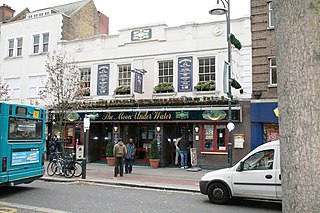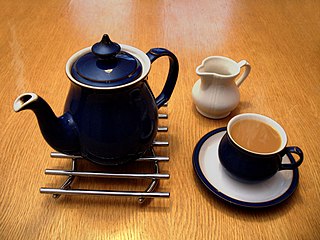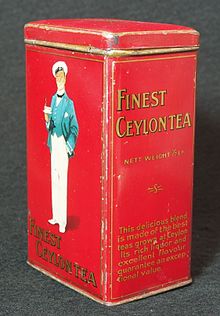
Animal Farm is a beast fable, in the form of a satirical allegorical novella, by George Orwell, first published in England on 17 August 1945. It tells the story of a group of anthropomorphic farm animals who rebel against their human farmer, hoping to create a society where the animals can be equal, free, and happy. Ultimately, the rebellion is betrayed, and under the dictatorship of a pig named Napoleon, the farm ends up in a state as bad as it was before.

Eric Arthur Blair, better known by his pen name George Orwell, was an English novelist, essayist, journalist, and critic. His work is characterised by lucid prose, social criticism, opposition to totalitarianism, and support of democratic socialism.

"Shooting an Elephant" is an essay by British writer George Orwell, first published in the literary magazine New Writing in late 1936 and broadcast by the BBC Home Service on 12 October 1948.

"Politics and the English Language" (1946) is an essay by George Orwell that criticised the "ugly and inaccurate" written English of his time and examined the connection between political orthodoxies and the debasement of language.

Earl Grey tea is a tea blend which has been flavoured with oil of bergamot. The rind's fragrant oil is added to black tea to give Earl Grey its unique taste. However, many if not most Earl Greys use artificial bergamot flavor.

Tea as a beverage was first consumed in China and the earliest extant mention of tea in literature is the Classic of Poetry, although the ideogram used (荼) in these texts can also designate a variety of plants, such as sowthistle and thrush.
ISO 3103 is a standard published by the International Organization for Standardization, specifying a standardized method for brewing tea, possibly sampled by the standardized methods described in ISO 1839. It was originally laid down in 1980 as BS 6008:1980 by the British Standards Institution, and a revision was published in December, 2019 as ISO/NP 3103. It was produced by ISO Technical Committee 34, Sub-Committee 8 (Tea).

Britannia metal is a specific type of pewter alloy, favoured for its silvery appearance and smooth surface. The composition by weight is typically about 92% tin, 6% antimony, and 2% copper.

"The Moon Under Water" is a 1946 essay by George Orwell, originally published as the Saturday Essay in the Evening Standard on 9 February 1946, in which he provided a detailed description of his ideal public house, the fictitious "Moon Under Water". It was Orwell's last contribution to the Evening Standard.

An apple dumpling is a baked or boiled pastry-wrapped apple. To prepare apple dumplings, apples are peeled, cored and sometimes quartered and placed on a portion of dough. The hole from the core may be filled with cinnamon, butter and sugar and sometimes dried fruit such as raisins, sultanas, or currants. The dough is folded over the apples and sealed. Sometimes a spiced sauce is poured over the dumplings which are then baked until tender; the sugar and butter create a sweet sauce. Apple dumplings can be served hot, cold, or room temperature for breakfast, dessert, or as a main dish.
"Why I Write" (1946) is an essay by George Orwell detailing his personal journey to becoming a writer. It was first published in the Summer 1946 edition of Gangrel. The editors of this magazine, J.B.Pick and Charles Neil, had asked a selection of writers to explain why they write.

Since the 18th century, the United Kingdom has been one of the world's largest tea consumers, with an average annual per capita supply of 1.9 kilograms (4.2 lb). Originally an upper-class drink in Europe, tea gradually spread through all classes, eventually becoming a common drink. It is still considered an important part of the British identity and is a prominent feature of British culture and society.
The "London Letters" were a series of fifteen articles written by George Orwell when invasion by Nazi Germany seemed imminent, and published in the American left-wing literary magazine Partisan Review. As well as these "London Letters", PR also published other articles by Orwell.
"Second Thoughts on James Burnham" is an essay, first published in May 1946 in Polemic, by the English author George Orwell. The essay discusses works written by James Burnham, an American political theorist.
"A Good Word for the Vicar of Bray" is an essay by the English author George Orwell. In it Orwell encourages the public-spirited action of planting trees, which may well make up for the harm people do in their lives. The essay was first published in Tribune on 26 April 1946.

The bibliography of George Orwell includes journalism, essays, novels, and non-fiction books written by the British writer Eric Blair (1903–1950), either under his own name or, more usually, under his pen name George Orwell. Orwell was a prolific writer on topics related to contemporary English society and literary criticism, who has been declared "perhaps the 20th century's best chronicler of English culture." His non-fiction cultural and political criticism constitutes the majority of his work, but Orwell also wrote in several genres of fictional literature.

Nineteen Eighty-Four is a dystopian social science fiction novel and cautionary tale by English writer George Orwell. It was published on 8 June 1949 by Secker & Warburg as Orwell's ninth and final book completed in his lifetime. Thematically, it centres on the consequences of totalitarianism, mass surveillance and repressive regimentation of people and behaviours within society. Orwell, a democratic socialist, modelled the authoritarian state in the novel on the Soviet Union in the era of Stalinism, and Nazi Germany. More broadly, the novel examines the role of truth and facts within societies and the ways in which they can be manipulated.
"The Art of Donald McGill" is a critical essay first published in 1941 by the English author George Orwell. It discusses the genre of English saucy seaside postcards that were sold mostly in small shops in British coastal towns, and particularly the work of its prime exponent, Donald McGill. Orwell notes the role of this type of humour as a rebellion against convention in society and states that, despite the vulgarity, he would be sorry to see the postcards vanish.
NOW was a British political and literary periodical founded in 1940 by George Woodcock, its first editor, from 1940 to 1941, and by Freedom Press from 1943 to 1947.

"Reflections on Gandhi" is an essay by George Orwell, first published in 1949, which responds to Mahatma Gandhi's autobiography The Story of My Experiments with Truth. The essay, which appeared in the American magazine Partisan Review, discusses the autobiography and offers both praise and criticism to Gandhi, focusing in particular on the effectiveness of Gandhian nonviolence and the tension between Gandhi's spiritual worldview and his political activities. One of a number of essays written by Orwell and published between Animal Farm (1945) and Nineteen Eighty-Four (1949), "Reflections on Gandhi" was the last of Orwell's essays to be published in his lifetime and was not republished until after his death.











